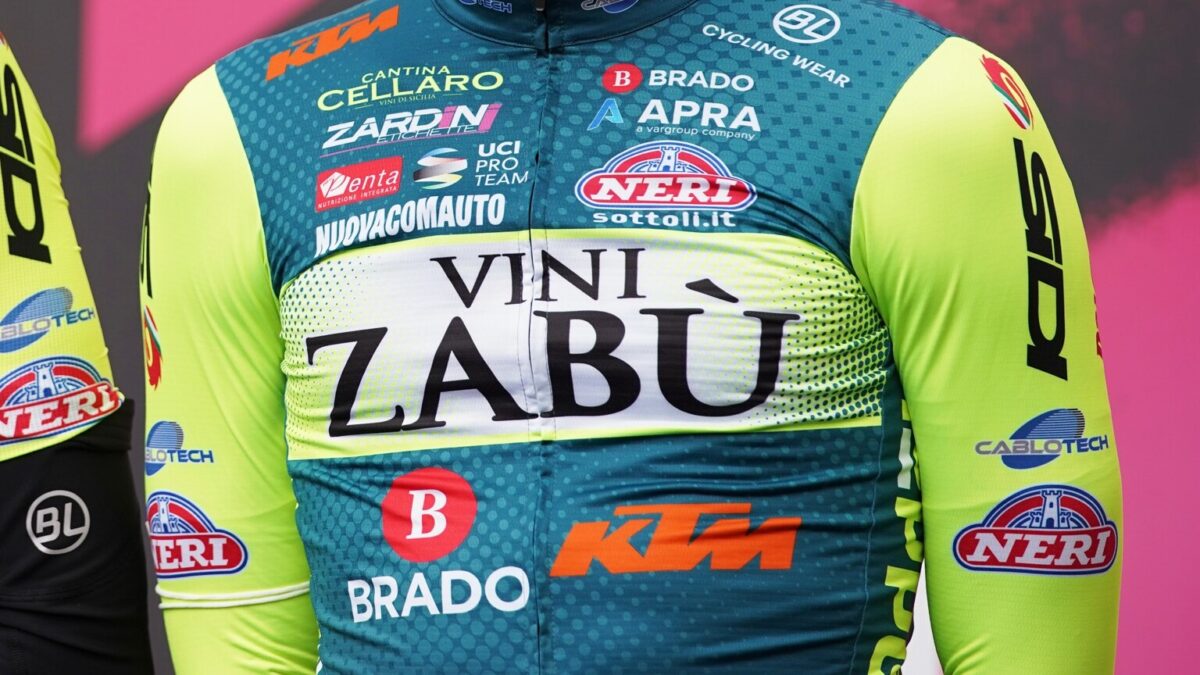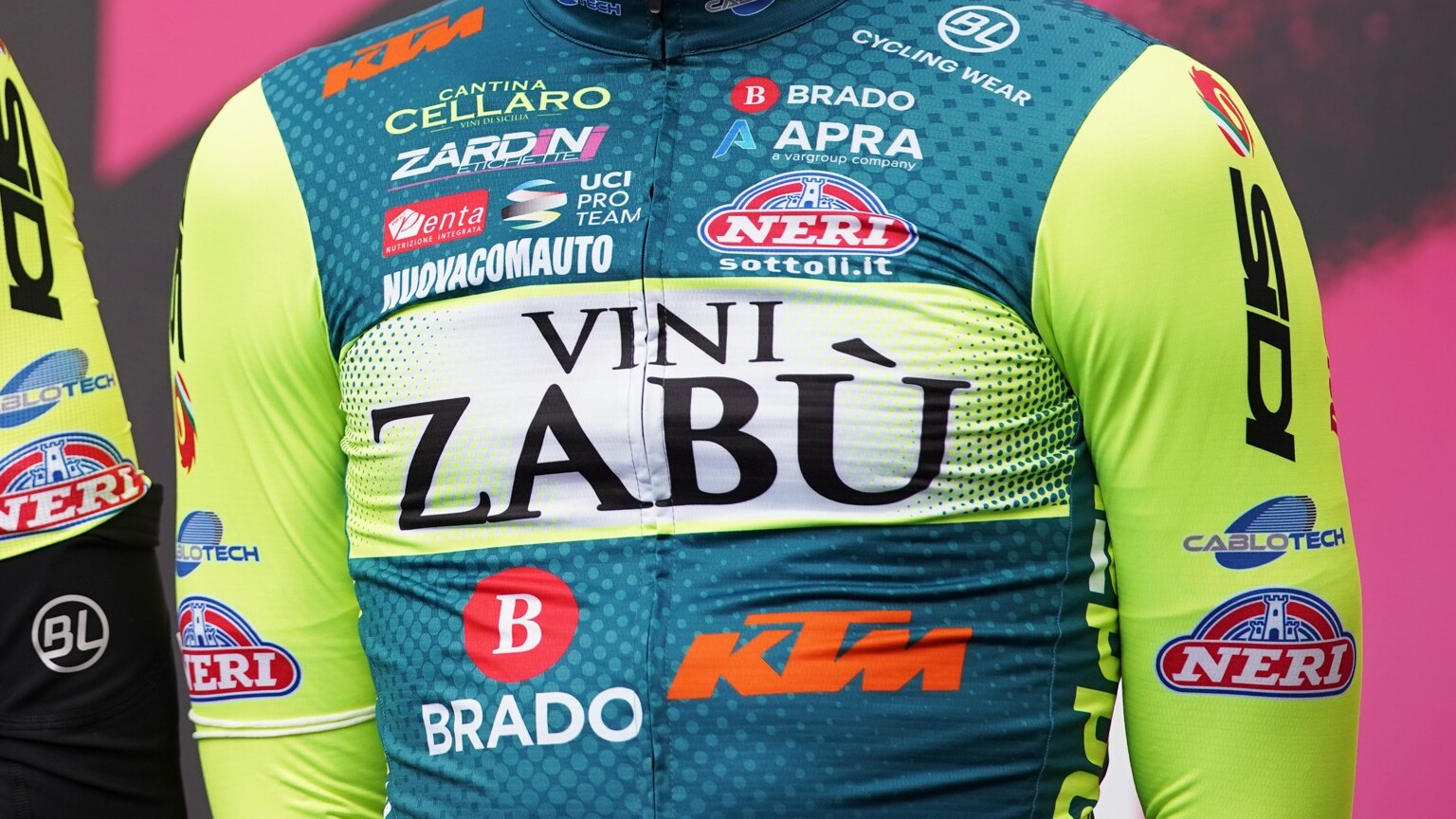 A total of 10 suspects have now been charged – with doping and related to the financial side of the inquiry – after a lengthy investigation
A total of 10 suspects have now been charged – with doping and related to the financial side of the inquiry – after a lengthy investigation
A former Italian ProContinental team, Vini Zabù, which has been under investigation for doping practices, and an alleged scheme that charged riders a fee to race, is accused of using an Irish company in their complex financial arrangements, described as a “criminal network”.
The team was placed under investigation after some adverse rider dope tests and now some of the management staff and riders are facing charges, including extorting cyclists. The case is due to come before a court in Pistoia, Tuscany, on Monday after a four-year investigation that involved 24 searches targeting some of the management and riders.
In a statement, the Carabinieri’s Health Protection Command – a criminal investigative force in Florence – said those who face the charges currently enjoy the presumption of innocence under law. However, it also set out, in great detail, its investigative findings that are now being used the ground the prosecutions.
And this includes the use of an Irish company to pay riders in an elaborate scheme to effectively charge them to race. It is claimed the riders were forced – on threat of exclusion from the team – to pay sums of money to join the team and also make other payments, including paying back all or part of their salaries, once they began racing.
In April, 2021, the team was suspended from the peloton for 30 days after two doping test positives, including one for EPO in an out of competition test in early 2021. The team withdrew from the Giro that year and it folded at the end of the 2021 season.
An inquiry into the team was underway at that time, conducted by NAS Carabinieri in Florence, a bureau that specialises in investigating health-related crimes, including criminality around doping in sport.
The Italian inquiry was aided by anonymous reporting to the Swiss Anti-Doping Agency, via a whistleblower platform, in which further information was supplied.
“In their very detailed reports, the aforementioned complainants complained of doping practices, as well as strong psychological pressure and otherwise harassing practices exerted by management to induce the cyclists to return part of their wages,” the Carabinieri’s Health Protection Command said of the whistleblower information.
Those who made the whistleblower reports were identified by Italian investigators, allowing them confirm the accuracy of their claims. This, according to the statement, revealed the existence of a “criminal network organised by the team”.
This network was set up “for the purpose of recruiting athletes of lesser value or otherwise left without a contract for various reasons. They were contracted “through a shell company based in Ireland – only after paying large sums of money, or with a commitment to fully or partially repay their salaries.”
Stickybottle understands that shelf company was linked to an address in Dublin’s south inner city where a postal address and answering services are available to a large range of companies. It is not the first cycling team to use that facility at that address, though doing so is not illegal in itself.
Once the riders were taken on and the series of financial demands began, the team was allegedly then “subjecting them to the threat of exclusion from competitive activity in the event of failure to pay the agreed-upon payment”.
The statement continued: “In some cases, the cyclists were provided, again for a fee, with a professional athlete’s license acquired by the team, through corrupt methods, from compliant sports federations in other countries.”
This involved, allegedly, “simulating changes of residence abroad, which in fact never occurred” and the entire investigation has now resulted in 10 people being charged.
Seven riders have been charged with doping-related issues, with one member of management also charged related to doping. Three suspects have been charged with the alleged “pay to ride” scheme and these three “are accused of colluding with extortion against several cyclists”.
The Carabinieri’s Health Protection Command said, in general, “pay to ride” schemes are considered by the Italian cycling federation, in some cases, as “a precursor to the use of doping”.
It added the practice can lead to riders who do not have the abilities to compete in professional cycling being recruited to a pro team and then being “forced to resort to pharmacological help”.
In general, it added, the “pay to ride” scheme also facilitated “financial doping”. It opened “the doors of the professional world and access to sponsorships to sports teams lacking the financial resources to pay real wages to athletes at that level”.

